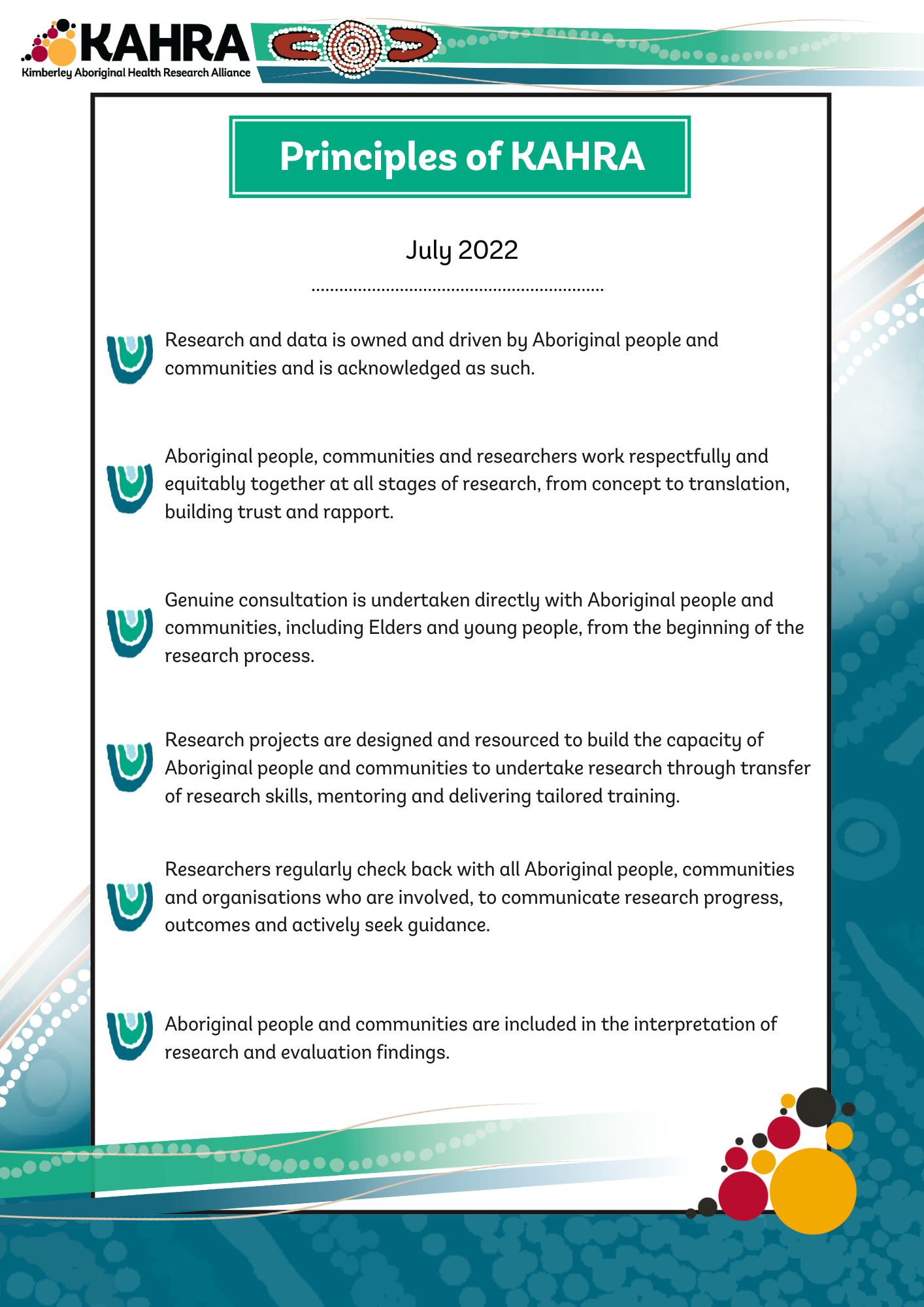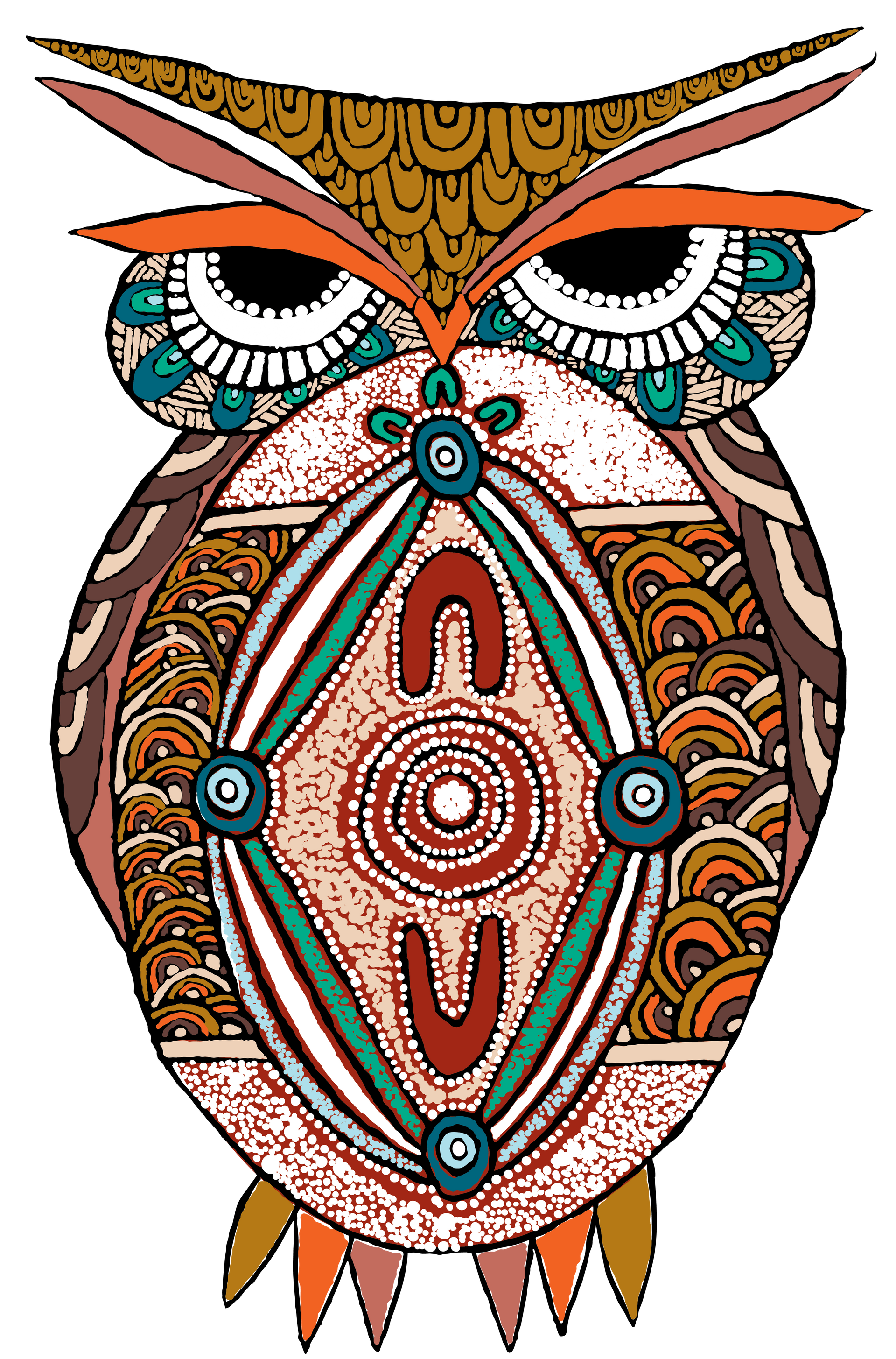History and Principles
History
In 2017, Lotterywest funded consultative activities with a range of Kimberley stakeholders that informed the 2018 report of KAHRA feasibility study. This documented concerns about excessive research burden on the Kimberley with inadequate benefit to health services and communities, and the clear need for change. In 2019, Lotterywest awarded almost $3 million seed funding to Kimberley Aboriginal Medical Services for KAHRA. KAHRA brings together Kimberley health services, Aboriginal communities and research organisations to fundamentally change how research is designed, conducted and used in the Kimberley. The activities of KAHRA are intended to ‘flip’ the state of investigator-driven research to instead have communities and health services directly driving the research agenda, for better health outcomes for Kimberley Aboriginal people.
The Founding Members of KAHRA are:
- Kimberley Aboriginal Medical Services
- WA Country Health Service–Kimberley
- Rural Clinical School of WA
- University of Notre Dame Australia–Broome campus
- Telethon Kids Institute
- Aboriginal Health Council of WA.
Principles of KAHRA
• Research and data is owned and driven by Aboriginal people and communities and is acknowledged as such.
• Aboriginal people, communities and researchers work respectfully and equitably together at all stages of research, from concept to translation, building trust and rapport.
• Genuine consultation is undertaken directly with Aboriginal people and communities, including Elders and young people, from the beginning of the research process.
• Research projects are designed and resourced to build the capacity of Aboriginal people and communities to undertake research through transfer of research skills, mentoring and delivering tailored training.
• Researchers regularly check back with all Aboriginal people, communities and organisations who are involved, to communicate research progress, outcomes and actively seek guidance.
• Aboriginal people and communities are included in the interpretation of research and evaluation findings.



